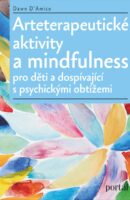Hana Janečková, Květoslava Hošková, Jelena Skibová
Hana Janečková is a teacher at the Protestant Theological Faculty, Department of Pastoral and Social Work, and at the 3rd Medical Faculty, Nursing Institute, both at Charles University, Prague. As a sociologist she is involved in the field of medical sociology, gerontology and community care, specially on the socio-medical border. She participated in several reminiscence projets in collaboration with European Reminiscence Network and participated at the founding of the Reminiscence Centre association.
Květoslava Hošková is a Ph.D. student at the Institute of Nursing and Midwifery, Ostrava University, and her topic is the impact of cognitive training on older adults with dementia. She works as an activation nurse and cognition trainer at the Thomayer Hospital Prague, Department of Geriatric Medicine. She was trained as a facilitator in group reminiscence work with families caring for people with dementia and is a member of Reminiscence Centre.
Jelena Skibová is a medical statistics expert in the Institute of Clinical and Experimental Medicine in Prague, she participates at the medical and public health research.
Abstract
OBJECTIVES: The aim of the study was to evaluate the effect of reminiscence therapy on selected indicators of health and quality of life of hospitalized older adults. THEORETICAL BASE: The study was based on the emphasis on health resources rather than on illness as described in the concept of salutogenesis. It also meets the person centered approach by Kitwood, where memories and life stories play an important role. METHODS: Quasi-experimental research design was used to compare data on subjective health status, activities of daily living, depression, cognitive functions and quality of life of hospitalised patients. The differences between the intervention and control groups and the pre- and post-intervention data were assessed. The intensive group and individual reminiscence activities were applied with each member of intervention group for 6 weeks. OUTCOMES: Significant differences between intervention and control groups were shown in the majority of measured values before and after intervention. Reminiscence therapy contributed significantly to the improvement of self-sufficiency, cognition, quality of life and subjective health status. SOCIAL WORK IMPLICATIONS: Results showed the meaning of creative, person-centred social work in-hospital and importance of multidisciplinary collaboration. Reminiscence can be used as a non-pharmacologic therapeutic method, which can contribute to patients´ health and improve their discharge from hospital.
Keywords
reminiscence therapy, non-pharmaceutical intervention, long-term hospitalization, quality of life, dementia
p. 74-89
Chcete-li zobrazit tento obsah, musíte být předplatitelem časopisu.
Nemáte předplatné? Objednejte si ho.






